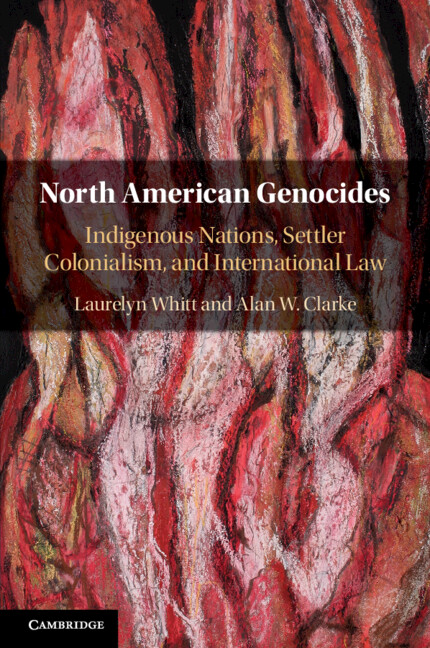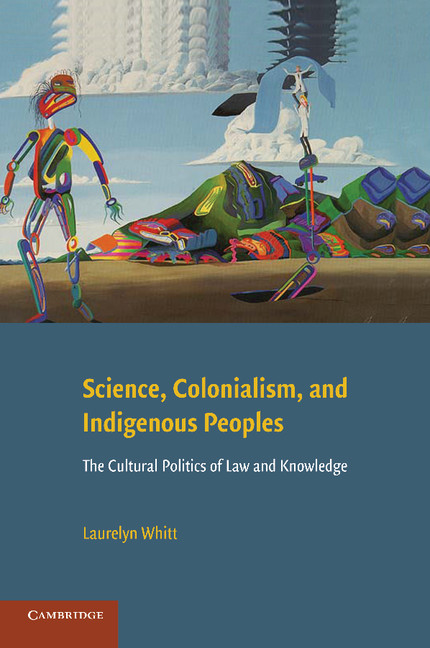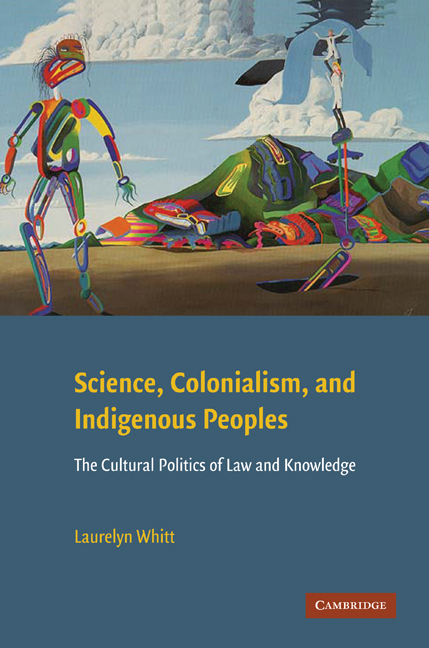North American Genocides
When and how might the term genocide appropriately be ascribed to the experience of North American Indigenous nations under settler colonialism? Laurelyn Whitt and Alan W. Clarke contend that, if certain events which occurred during the colonization of North America were to take place today, they could be prosecuted as genocide. The legal methodology that the authors develop to establish this draws upon the definition of genocide as presented in the United Nations Genocide Convention and enhanced by subsequent decisions in international legal fora. Focusing on early British colonization, the authors apply this methodology to two historical cases: that of the Beothuk Nation from 1500–1830, and of the Powhatan Tsenacommacah from 1607–77. North American Genocides concludes with a critique of the Conventional account of genocide, suggesting how it might evolve beyond its limitations to embrace the role of cultural destruction in undermining the viability of human groups.
- Offers specific and detailed historical case studies of genocides of Indigenous peoples, using the conventional account of genocide
- Considers both the strengths and limitations of the conventional account of genocide, as well as the need for a socio-historical, systemic account of genocide
- Demonstrates that the forcible transfer of Indigenous children in the context of residential/boarding schools can be regarded as an act of genocide
Reviews & endorsements
'For too long, the historical experience and lasting impact of settler colonialism on the indigenous peoples of the Americas has been neglected in international law scholarship. This thoughtful and provocative work helps bring this reality to the surface, particularly in respect of the controversial use of the term 'genocide' to describe colonial policies of physical and cultural destruction.' Payam Akhavan, McGill University, Montreal and former UN prosecutor
'This indispensable, remarkable and necessary book will change the way one comprehends the meaning of the crime of genocide in United Nations law. It is a brilliant and groundbreaking exposition that illuminates the predicament of the contested understanding of the crime of genocide and challenges the refusal to apply it to the destruction of North American Indigenous nations.' Sakej Henderson, Native Law Centre of Canada
'In 1946, two years before the UN Genocide Convention was adopted, the General Assembly recognized that 'many instances' of the crime of genocide had already taken place. This thoughtful and compelling account makes the case for one of them, the intentional destruction of indigenous peoples in North America.' William A. Schabas, Middlesex University
Product details
July 2019Adobe eBook Reader
9781108582766
0 pages
This ISBN is for an eBook version which is distributed on our behalf by a third party.
Table of Contents
- Introduction
- 1. North American genocide denial
- 2. The legal case for historical genocides: a retrospective methodology
- 3. Settler colonialism and Indigenous nations
- 4. A legal primer for settler colonial genocides
- 5. The Beothuk (1500–1830)
- 6. The Powhatan Tsenacommacah (1607–1677)
- 7. The conventional account of genocide: from a restrictive to an expansive interpretation
- 8. Toward an account of systemic genocide
- Appendix A. Secretariat's draft convention
- Appendix B. Ad hoc Committee Draft Convention
- Appendix C. United Nations Convention on the Prevention and Punishment of Genocide
- Index.





